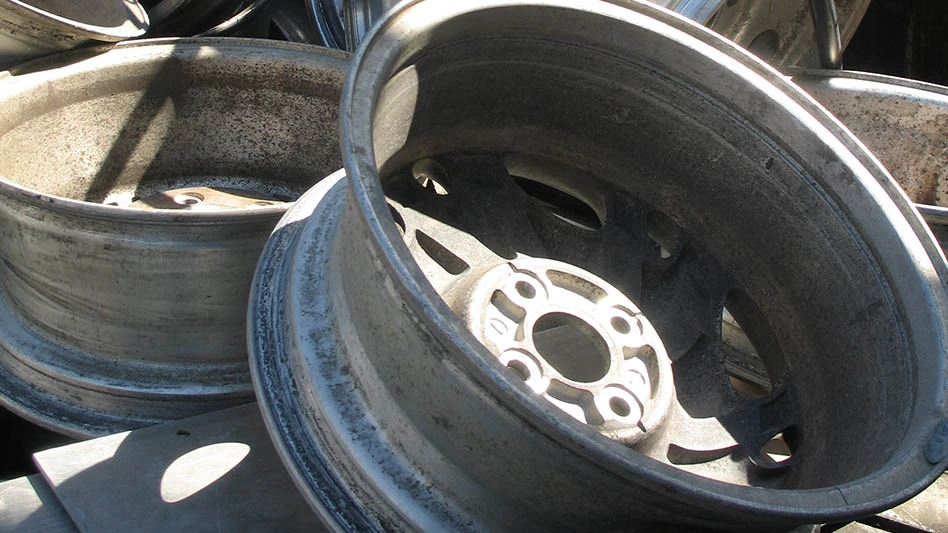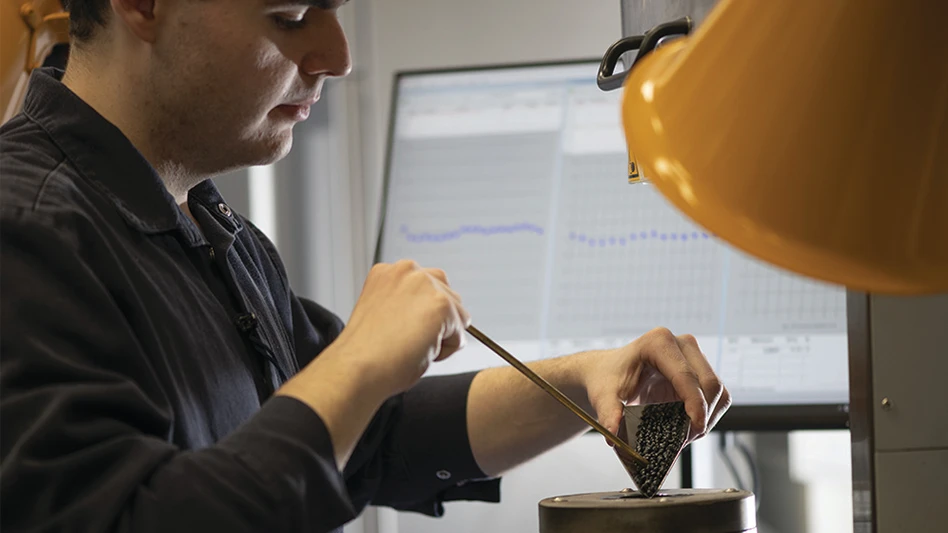To write about recycling in Mexico, I must explain briefly how we recycle in Mexico, so that the challenges the Mexican recycler faces can be understood.
Unlike in other countries, in Mexico the percentage of source recycling is very small. There is no system of selective collections carried out by municipalities. As a result, large amounts of recyclables end up in trash dumps.
To what can we attribute these low levels of separation at the source? There are two closely related factors. First, and perhaps foremost, are Mexicans’ ideas about recycling. For many people, recycling is merely an economic activity, not an ecological one. That is, they think that only those in a precarious financial situation recycle because they need additional sources of income. In general terms, the middle and upper classes do not participate much in recycling activities.
Second, there are no laws that require citizens to sort their waste or a system that fosters recycling through financial incentives. For example, some years ago, there was a deposit required for glass containers; the deposit could be paid in cash or by exchanging empties. This forced people to take containers to the store in order to avoid paying cash to buy a beverage. Nowadays, most glass containers have been replaced by “nonreturnable” plastic containers that frequently end up in the trash.
What consequences do these factors have for recycling in Mexico? These are some of them:
•Having to recover the recyclables from the trash and not directly from the source implies that the materials that are captured commonly are contaminated in some way. This forces the recyclers to invest time, money, and effort to detect possible contaminants and remove them in order to have secondary materials that can be used by industry.
•The fact that recycling is considered primarily an economic activity implies that the capture of materials depends on price. People might “take the trouble” to collect their aluminum cans to sell later, but might not take paper and cardboard because the amount they receive for them, if any, will be minimal. It also happens that as the prices of recyclables go down, the motivation to recycle them does, too.
Unfortunately, there does not seem to be a feasible short-term solution for the problems mentioned above. On the one hand, some regulations that foster sorting at the source seem necessary. But since a significant part of the problem is the lack of awareness of the importance of recycling, most likely, such regulations would be opposed by various groups.
Thus, the solution should be sought through environmental education programs that encourage greater responsibility on the part of the population with regard to waste management. Nevertheless, education is rarely sufficient if it is not accompanied by laws that regulate waste management.
The tax issue also seriously affects recycling activities. In Mexico, every sale has to be accompanied by an invoice, which can be printed only by authorized printers. For years, recyclers were unable to comply with this regulation, since, obviously, a 10-year old boy who comes to sell cans he has collected does not bring an invoice with him.
After approaching the authorities several times, the Instituto Nacional de Recicladores (INARE), Mexico City, succeeded in having the peculiarities of recycling recognized.
Nevertheless, what the recyclers gained was authorization to self-invoice—but in exchange for having to withhold 5% of the total sale as income tax. This represented a great success because it at least furnished a fiscal means of confirming expenses for purchasing recyclable materials.
On the other hand, however, it represents greater expenses and operating costs that reduce the recycler’s profits, given that, for example, a company that buys retail, by having to self-invoice for the purchase of a pound of aluminum, typically spends more on the paperwork than it earns on the transaction.
COMPETING WITH RULE-BREAKERS
Taking the above into consideration gives rise to the question: Why don’t recyclers take these operating costs into account when they set purchase prices, so that they can continue operating in a profitable manner?
Unfortunately, it isn’t that simple. Mexican businessmen—and not just recyclers—are greatly affected by “unfair competition,” that is, by individuals who don’t register their commercial activities with the authorities or by companies that, although they are established, don’t comply with their fiscal responsibilities.
This forces recyclers to compete with individuals who can pay very high prices for materials because their expenses are much lower, as they do not comply with various legal requirements.
Recyclers have also had to face another problem: the lack of consumer support for some secondary materials. At the last INARE Congress, Mexican recyclers had the opportunity to express their concern about certain consuming companies, because they offer the same price to recycling companies as to any person who offers them materials, the difference being that they demand higher-quality material from the recyclers.
If we add to the aforementioned the crisis the worldwide recycling industry is facing at present, we can see that the recycling scene in Mexico becomes difficult. Without a doubt, there are many business and growth opportunities in this industry. But the reality is that it is no longer as profitable a business as it was and that a lot of work is required to earn as much as or even less than before.
I feel that recyclers participating more actively in issues relating to this activity can greatly improve the recycling situation in Mexico. For example, recyclers must be able to offer to the authorities possible solutions or incentives to create better recovery of recyclable waste, to create environmental education programs to educate the population about the importance of recycling, and to not wait for the authorities to take the initiative to do so.
There is also a need to be open to new business opportunities and to look for new markets. To this end, INARE has dealings with the authorities and offers recyclers a commercial site: Glorem www.gblmkt.com .
Nevertheless, INARE’s potential has not been completely developed because many of the resources it offers, many of its successes, have not been taken advantage of because of a lack of greater involvement by recyclers in the activities of the Institute.
More active participation by recyclers in all matters that affect this industry could be a viable option for counteracting the difficulties that at present leave recycling in critical condition.
The author oversees the Mexico City based Web site www.gblmkt.com , which covers global recycling markets. She can be e-mailed at administrador@gblmkt.com .

Explore the September 2001 Issue
Check out more from this issue and find your next story to read.
Latest from Recycling Today
- New recycling grant program launches in Massachusetts
- Tire Recycling Foundation names executive director
- Dock 7 named 2025 Exporter of the Year at New Jersey International Trade Awards
- Waste Connections reports ‘better than expected’ Q1 results
- Commentary: How EPR is transforming the packaging industry
- Acerinox names new North American Stainless CEO
- Greenwave closes 2024 books with red ink
- Steel Dynamics nets $217M on record shipments






